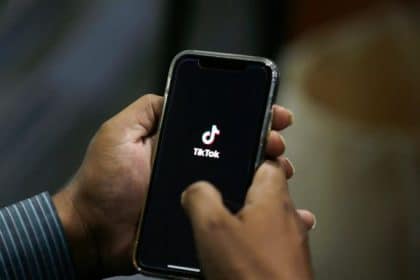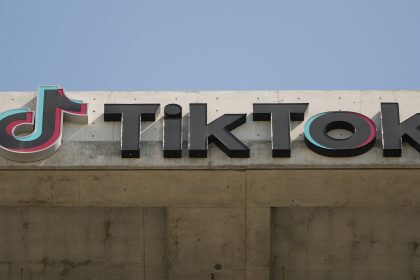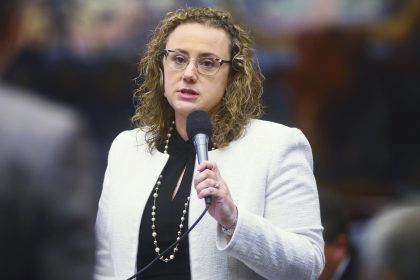Debate Continues After Congress Passes TikTok Divest-or-Ban Bill

WASHINGTON — The U.S. Congress recently passed a bipartisan bill, The Protecting Americans from Foreign Adversary Controlled Applications Act, that would force ByteDance, Ltd., owners of TikTok, to sell the social media platform within a year or face the consequences of a ban.
Claiming this is a narrowly targeted measure to address a clear national security threat, consistent with other restrictions on foreign ownership in areas like broadcast media, the divest-or-ban bill is not the first challenge TikTok has faced in the United States.
In 2020, President Trump started a divestment effort, which courts blocked. President Biden ordered a new review, which ultimately led to the recent Congressional action.
The state of Montana has also individually tried to ban TikTok, though courts also halted this measure on First Amendment grounds.
Congress’s divest-or-ban bill turns the free speech argument around, saying it is TikTok that threatens the free speech of the 170 million Americans who use it.
ByteDance says it will sue, citing all recent legislation as “unconstitutional.”
Opponents of TikTok include Steven McKeon, founder and CEO of MacgyverTech and MacNerd, who claims the app was “purposely sent from China to corrode American youth,” and could be used to disseminate Chinese propaganda as well as access data on the phones of U.S.-based users.
“I have direct experience with a client here in America who was hacked,” McKeon told The Well News. “TikTok was aggressively copying data from the app and then sending it directly to China. We saw in real time how the TikTok app was being used very maliciously.”
Jennifer Huddleston, a technology policy research fellow at the Cato Institute, “doesn’t doubt that McKeon and others who oppose TikTok are genuine in their security concerns,” she said in conversation with The Dynamist Podcast. She believes ByteDance will prevail, however, if any suit can’t prove strict scrutiny, “that it has a clearly articulated compelling reason… and that this is the least speech restrictive option available.”
“At the end of the day, the debate is not actually about TikTok,” Huddleston said. “This debate should be focused on the First Amendment rights of Americans to choose the platform for expression.”
ByteDance, which launched TikTok in Beijing in 2017 but later reincorporated the company in the Cayman Islands, has repeatedly denied sharing user data or having any ties with Chinese authorities. Instead, the company touts its benefit to Americans, claiming in a recent X post that the social media platform actually adds $24 billion to the U.S. economy annually.
“This is a national security issue for the United States,” Michael Sobolik, senior fellow in Indo-Pacific Studies at the American Foreign Policy Council, told The Dynamist Podcast.
“The Second Cold War of the United States is with the Chinese Communist Party, and what nation-states in a Cold War do is look for asymmetric vulnerabilities of their competitors. What TikTok is, is a theory of attack of Beijing on America’s perhaps greatest competitive advantage, which is our democratic system and the freedom of expression that we have.”
Huddleston, doubling down on free speech concerns, also shared her thoughts that an “unprecedented intervention into what has been a free market” could potentially eliminate the popular app or strengthen competing apps’ market share.
And countless creators on the app have expressed their fears that livelihoods developed on the app and communities fostered on the platform will disappear should a ban take effect.
“[TikTok is] often presented as a form of free speech, but what it really is — from a national security perspective — is an attack on the openness of America’s civil society,” Sobolik said.
“This is not a theoretical concern as so many will say. This is an actual proven concern of ByteDance, and their CCP overlords, leveraging TikTok to depress content sensitive to the CCP and boosting content that is in the interest of the CCP.
“What is concerning is the ability of ByteDance to tweak the algorithm to amplify content that strategically aligns with the interests of the Chinese Communist Party. The volume [of that content] is indicative of Beijing’s control over the algorithm.
“And Americans have been spied on through TikTok. I think it’s worth letting that seep in and not glossing over,” Sobolik said. “The primary geopolitical adversary in a genocidal regime on the other side of the world controls TikTok — that’s the issue of ownership.”
ByteDance has denied rumors that it is considering the sale of a majority stake in TikTok’s American business and says it plans to file a lawsuit challenging the new U.S. law on First Amendment grounds.
In a video posted to TikTok, TikTok CEO Chew Shou Zi called the Congressional action “a disappointing moment” that’s “ironic, because the freedom of expression on TikTok reflects the same American values that make the United States a beacon of freedom.”
“Rest assured, we aren’t going anywhere,” he continued.
Should legal action fail, the app could become outlawed in the U.S. as early as January 2025.
“My thoughts are that the app should be banned in America,” McKeon told TWN. “It’s more important than ever to stay safe on the web and take steps to protect all technology assets.
“I’ve seen how [TikTok has] helped [creators] but on the other side, they are sacrificing their privacy and security by having data sent directly to China from the app… and who knows what’s going on with that data.”
Kate can be reached at [email protected].






















